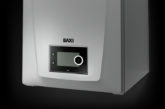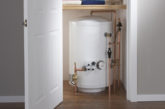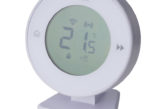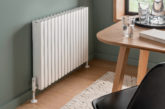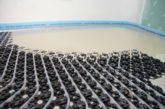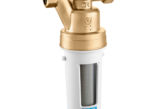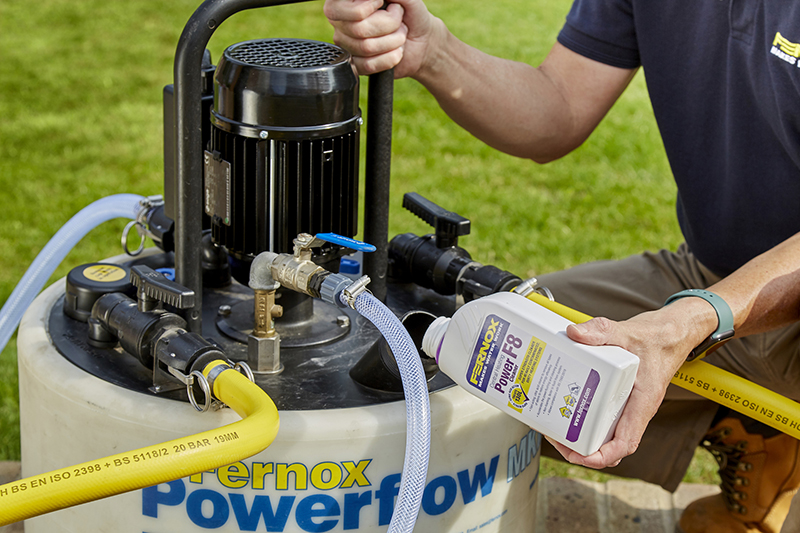
PHPI caught up with Richard Crisp, Head of Chemistry at Fernox, to ask some of the common questions installers have about maintaining the efficiency of domestic and commercial heating systems.
Q What guidance documents do installers need to follow for both domestic and commercial projects?
Whilst the maintenance of both domestic and commercial heating systems is similar, there are some key nuances to be aware of. To ensure best practice, it is worth familiarising yourself with the recommendations outlined in the latest guidance documents.
Domestic
For domestic projects, BS 7593:2019 details how to ensure system efficiency and longevity using the following steps:
- Clean – using a recognised method such as powerflushing, mains pressure or gravity cleaning.
- Guard – install an in-line system filter to capture any contaminants and prevent them from circulating through the system.
- Protect – dose with inhibitor to prevent sludge, scale and debris formation.
- Maintain – clean the filter during the annual boiler service to remove any contaminants collected.
- Test – inhibitor levels should be checked on site annually and via laboratory testing every five years.
Commercial
When undertaking a commercial project, BSRIA BG 29 and BSRIA BG 50 are the most important guidance documents to follow in order to ensure compliance:
- BSRIA BG 29 – advises on the commissioning of systems and recommends using an appropriate cleaner to remove any sludge, scale or debris and completing a biocide wash to disinfect the water fully. System water should be tested at the commissioning stage, after it has been cleaned and dosed with inhibitor.
- BSRIA BG 50 – provides guidance on ongoing protection and maintenance and advocates the installation of in-line system filters.
Both guidance documents should be used in conjunction with each other to ensure the smooth running of the system. Other useful documents include the ICOM Water Treatment and Conditioning of Commercial Heating Systems Guide, and the work of the Closed Systems Control Association (CSCA).
Q What are the key points to know about cleaning domestic and commercial systems?
As outlined above, even brand new systems will require cleaning on installation as well as throughout their lifetime to comply with the latest guidance. Using a cleaner like Fernox Cleaner F3 can breathe new life into the system by removing debris, restoring energy efficiency and extending the system and boiler life.
A popular method of cleaning is powerflushing, which works by sending water at a high speed through the system to shift debris, limescale and sludge build-up. To aid the process (especially in heavily contaminated systems), Fernox Power Cleaner F8 can be used.
For commercial systems, BSRIA BG 29 recommends completing a biocide wash to disinfect the system water fully. This prevents bacterial contamination and fungal growth and can be completed using products such as Fernox Biocide F7 as a cleaner. A biocide should be used in conjunction with an inhibitor like Fernox Protector F1 to ensure full system protection against corrosion and scale.
Q What products are available to ease the testing process for domestic and commercial projects?
Testing is the key to remaining one step ahead of any problems and provide a seamless service to customers.
Domestic
As outlined in BS 7593:2019, domestic systems should be tested after commissioning and annually throughout the life of the system. Not only is testing important to comply with the latest guidance documents, it is also required for compliance with many boiler warranties. For quick and easy testing, the Fernox Express Inhibitor Test can be used to check the concentration of inhibitor in the central heating system water and provide an instant pass or fail result.
In order to comply with BS 7593:2019 and ensure full system protection, inhibitor levels should be checked annually throughout its life cycle with a full laboratory analysis of the system water performed every five years. This can be completed with a simple postal test such as the easy and convenient Fernox Water Quality Test – which can be used in conjunction with the Fernox Water Test App to enable easy tracking and monitoring of results.
Commercial
Similar to domestic projects, commercial systems require testing on commissioning and at regular intervals thereafter to prolong the life span of the system and ensure there is sufficient level of inhibitor in the system water.
To do this, products such as the Fernox System Health Check provide a simple solution for testing that requires minimal installer input. The kit has everything the installer needs to take a sample of the system water to send off to the Fernox laboratory for testing – which includes whether there is any debris or cleaner residue present and if the system has been treated and dosed correctly. Fernox will then advise if the system is fully protected – or will provide details on the appropriate treatment.


